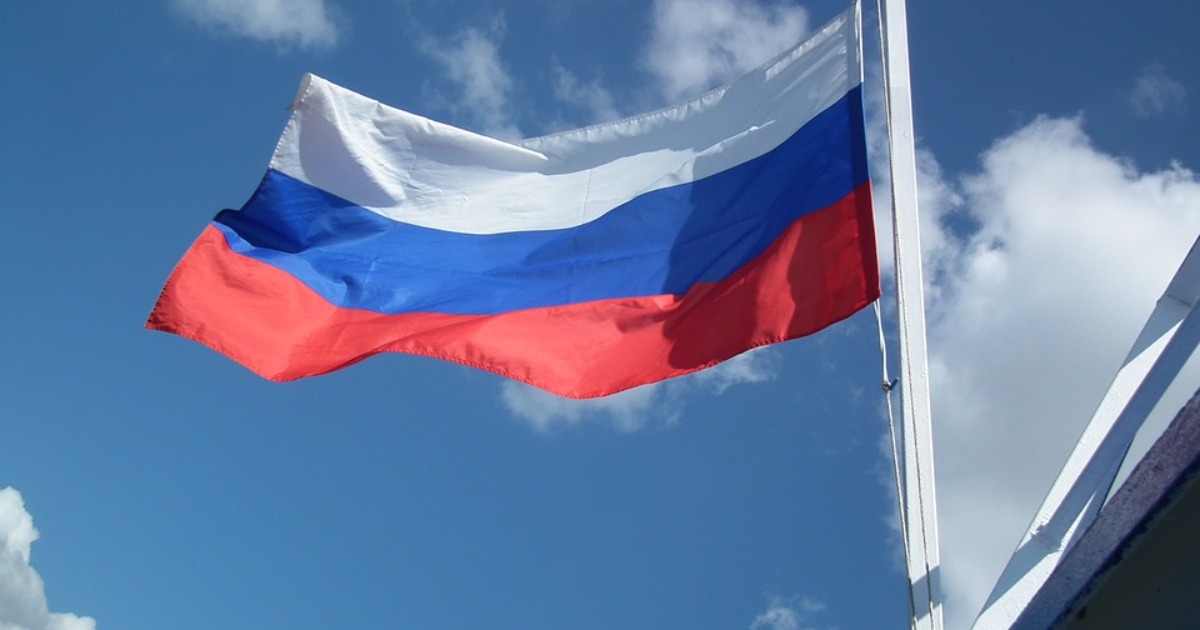Different Under Trump? Why Russia Grates Americans So Much
The reemergence of US’s erstwhile counterpart from the bipolar world order is an uncomfortable reminder that the presumed age of American hegemony is history.
December 28, 2016

The era in which the United States reigned supreme, unchallenged in its economic, political and military power, is over.
Challenging American power
Population growth, diffusion of technology, development and globalization have combined to enable a number of actors to approach – though admittedly not yet in all respects quite equal – the United States.
China has recorded decades of blistering growth and development, illustrated by the fact that it has surpassed the U.S. as the world’s largest energy consumer.
With a population in excess of 1.3 billion, it has also made massive technological progress and is now the world’s third-ranking military power. China is now also the world’s largest exporter and holds vast amounts of U.S. government debt.
India, like China, has achieved decades of high growth and has undergone significant development. Also like
China, it has a population of 1.3 billion and has moved up on the list of the world’s top military powers. India’s technological capabilities are also progressing, demonstrated by its expanding space program.
Russia, for its part, has a much smaller population. It possesses massive energy resources and has used revenues from that sector to invest in and modernize its armed forces. Russia also possesses the world’s largest nuclear arsenal.
Russia or China: Who grates more?
Of these rivals, Russia has arguably been the most proactive in challenging American power and position in the world.
In his speech at the Victory Day parade in Moscow’s Red Square in 2015, the biggest military parade since the collapse of the Soviet Union and marking the 70th anniversary of the defeat of Nazi Germany, Russian president Vladimir Putin berated the U.S., protesting that “in the past decades, we have seen attempts to create a unipolar world.”
Beyond the Syrian intervention, Russia’s increasing unwillingness to accept the unipolar paradigm is evidenced by it withdrawing from arms control agreements such as the Conventional Armed Forces in Europe (CFE) Treaty and the Nuclear Security Pact.
A more modern and capable Russian military has also directly challenged the United States by provocative actions such as probing – or even incursions into – NATO airspace and “buzzing” U.S. warships.
Russia is using its reinvigorated military as a tool of policy in the true Clausewitzian sense. A combination of conventional and hybrid warfare near its borders in Georgia and Ukraine and, more notably, “out of theater” operations supporting President Bashar al-Assad in Syrian civil war.
The latter, in particular, shows Russia’s increasing boldness, and is a sign that foreign interventions are no longer only a Western – i.e. American – monopoly.
Syria as an uncomfortable reminder
The Syria debacle – or rather tragedy – has exposed the degree to which American power and influence have dwindled. In the ongoing catastrophe, it is Russia that is calling the shots, with the U.S. increasingly responding to, rather than shaping, events.
American power is also being challenged elsewhere. China is becoming increasingly assertive in the South China Sea, warning and tracking U.S. warships.
American warships have also been harassed by Iranian vessels in the Strait of Hormuz. North Korea is threatening the U.S. with pre-emptive nuclear strikes and is continuing its nuclear and missile programs.
Even the Philippines under President Rodrigo Duterte are declaring “separation” from the U.S. and pivoting to China.
Implications for American exceptionalism
American decline is difficult to accept for believers in American exceptionalism, which includes most of its political elite.
The sense of waning American power was, therefore, a central theme of the U.S. election, with Donald Trump pandering to a nostalgic desire to “make America great again.”
But despite Trump’s victory and his soaring rhetoric, like the laws of physics, American decline (relatively speaking) is inevitable.
As emerging economies, with their vastly greater populations, continue to develop and grow, the United States will represent an ever smaller proportion of the world’s GDP.
The U.S., in other words, will undergo the same relative decline that Europe, once dominant on the global political, economic and military stage, has undergone already.
With greater wealth, emerging nations will also inevitably have more resources to invest in research and development, including in military affairs. That, combined with the diffusion of technology already underway, will result in America’s technological lead diminishing more and more.
Time to accept multipolarity
This will then also affect the other yardstick of American power – its military.
Though U.S. policymakers, both Democratic and Republican, support maintaining global military supremacy – a policy summed up by President George W. Bush as “America has, and intends to keep, military strengths beyond challenge” – in the long run this will be untenable.
Economically, technologically and, as a consequence, militarily, America’s position in the world will thus continue to weaken.
The writing “American decline” is on the wall – in several languages. America will no doubt continue to be a great power, but it must accept that it will be one of many great powers in a multipolar world.
Trump and Russia
No matter how much Donald Trump will try to cozy up to Russia’s Vladimir Putin, one a peacock, the other a fox, the two men — extremely pride-driven and perception-driven as they are — will eventually come to blows.
High levels of personal vanity — in that field, Mr. Putin, despite his cutting a diminutive figure, is not prepared to play second fiddle to Mr. Trump — are never a good base on which to form a solid relationship.
The Trump/Putin rapprochement, if it happens for real, is to be a momentary one. For now, they need each other if for no other reason than demonstrating to their respective home audience that they are the “chosen one” who can make a big difference in their nations’ lives.
It remains entirely unclear what, in terms of real substance, they can deliver for one another.
Takeaways
Of America's rivals, Russia is arguably the most proactive in challenging US power in the world.
The Syria tragedy has exposed the degree to which American power and influence have dwindled.
The sense of waning American power was a theme used by Trump who pandered to a nostalgic desire to "make America great again."
Economically, technologically and militarily, America’s position in the world will thus continue to weaken.
